Unveiling the Truth about Coconut Oil: Indian Style. Discover myths, facts, and science behind this tropical treasure. Read on!
For years, coconut oil has been touted as a superfood, a cure-all for everything
from hair woes to weight loss. But is this tropical treasure truly as healthy as everyone claims, or is it just another fad?

Let's dive deep into the facts and fiction surrounding coconut oil, separating the myths from the reality, Indian style.
Coconut oil gains popularity in India for health benefits
From the sunny shores of Kerala to the bustling markets of Mumbai, coconut oil is a staple in many Indian households. It's been used for centuries in cooking, skincare, and hair care. The recent surge in its popularity, however, stems from claims about its supposed health benefits.
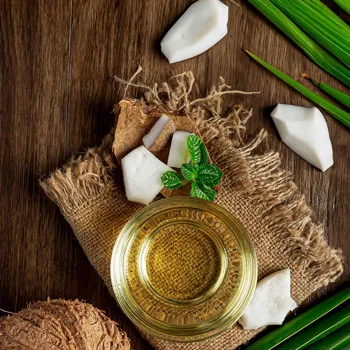
People are using it for weight management, energy boost, healthier skin and even improving heart health.
Coconut oil's benefits include weight loss, improved cholesterol, and skincare
One prevailing belief is that coconut oil aids in weight loss. Proponents argue that the medium-chain triglycerides (MCTs) in coconut oil are metabolized differently than other fats, leading to increased energy expenditure and fat burning.
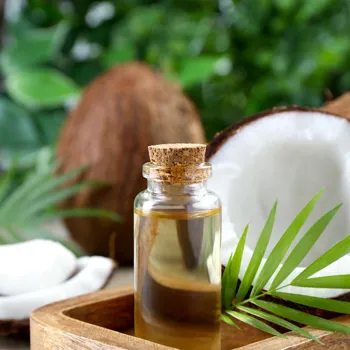
Others tout coconut oil's ability to improve cholesterol levels, attributing this to its high saturated fat content, which they claim is different from the saturated fats found in animal products.
Its widespread use in beauty routines speaks to its supposed ability to moisturize skin and hair, leaving them soft and shiny. It's believed that coconut oil's antioxidant properties can protect against skin damage.
Coconut oil's health claims are nuanced; lauric acid's impact differs from pure MCT oil
While some of these claims have a kernel of truth, the overall picture is more nuanced. Yes, coconut oil contains MCTs, which are absorbed more readily by the body.
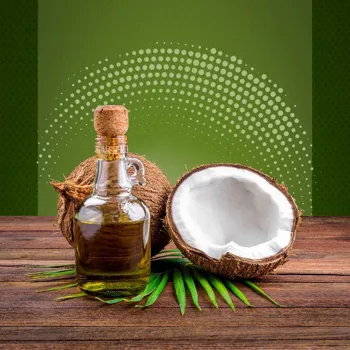
However, the primary MCT in coconut oil is lauric acid – which behaves more like a long-chain fatty acid once digested, limiting its potential impact on metabolism. Studies showing weight loss benefits often use pure MCT oil, not the coconut oil you buy in stores.
The type of saturated fat in coconut oil is still saturated fat, and it has been shown to increase LDL cholesterol which is considered unhealthy cholesterol.
Coconut oil's effects on health and beauty vary
The studies on coconut oil and cholesterol are mixed. While it can raise HDL (good) cholesterol, it also significantly increases LDL (bad) cholesterol in many individuals. This can increase the risk of heart disease.
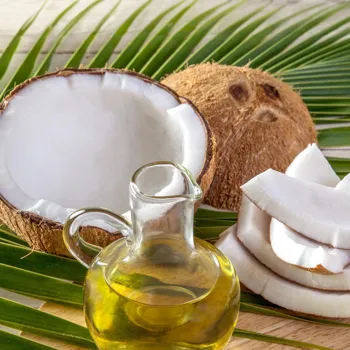
While many swear by its moisturizing properties, too much coconut oil can actually clog pores for some skin types. Similarly, while it can add shine to hair, overuse may lead to protein loss and breakage.
Understanding fats: coconut oil's role in diet and health
The key to understanding coconut oil's place in a healthy diet lies in understanding fats. Fats are essential nutrients, vital for energy, hormone production, and cell function. However, different types of fats have different effects on the body.
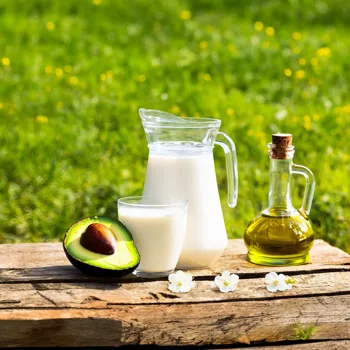
Saturated fats, like those abundant in coconut oil, are generally considered less healthy than unsaturated fats. Unsaturated fats, found in olive oil, nuts, and avocados, are associated with heart health benefits.
AHA advises limiting saturated fat, be cautious with coconut oil
The current guidelines from the American Heart Association recommend limiting saturated fat intake to less than 6% of total daily calories. Given the high saturated fat content of coconut oil, moderation is key. One tablespoon of coconut oil contains around 12 grams of saturated fat.
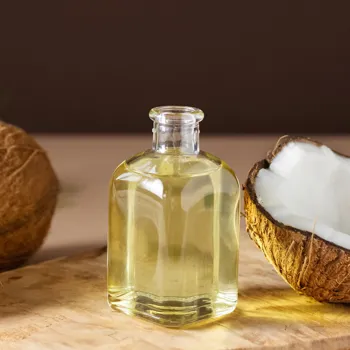
Balance fats sources for health, not just coconut oil. Include fruits, veggies, fiber
Therefore, relying solely on coconut oil as your primary source of fat might not be the best strategy for overall health. It's best to balance different sources of healthy fats in your diet rather than focusing on a single one.
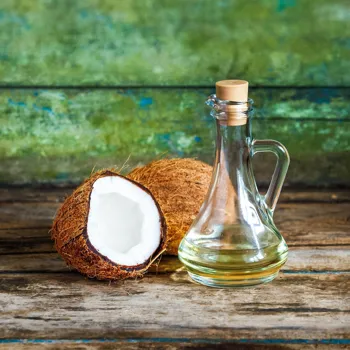
It is advisable to eat lot of fruits and vegetables and fibre rich food rather than depending on oily food.
Coconut oil: not villain or hero, use in moderation
So, where does this leave coconut oil? Is it a villain or a misunderstood hero? The truth, as always, lies somewhere in between. Coconut oil is not inherently "bad," but it's also not the miracle cure-all it's often made out to be.
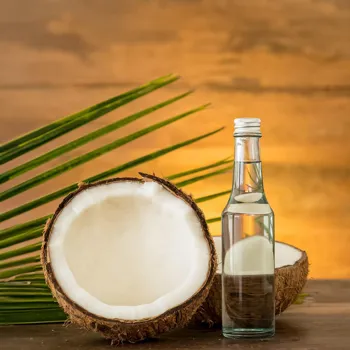
The key is to use it in moderation and be mindful of your overall dietary intake.
Coconut oil: versatile in cooking, but not sole option; consider health benefits and skin type
For cooking, coconut oil can be a flavorful addition, especially in South Indian dishes or stir-fries. However, it shouldn't be your only cooking oil. Olive oil, rice bran oil, and other unsaturated oils are healthier choices for everyday cooking.

In skincare and hair care, coconut oil can be beneficial for some, but always patch-test first to ensure it doesn't cause irritation or breakouts. For those with oily skin, it may be best to avoid coconut oil altogether as it can clog pores.
Coconut oil: traditional vs modern views in Indian culture
In India, coconut oil has a long and cherished history. From grandma's hair oil recipes to flavorful curries, it's deeply ingrained in our culture. However, it's important to approach traditional wisdom with a critical eye, informed by modern science.
Just because something has been used for generations doesn't automatically make it healthy.
Differentiate occasional vs. daily coconut oil use based on health needs
We need to differentiate between occasional use and daily reliance. A weekly coconut oil hair massage is different from using coconut oil for all your cooking needs. It's also important to consider individual needs and health conditions.
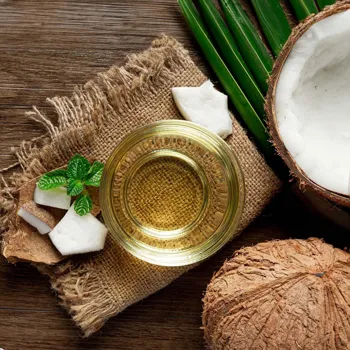
Someone with high cholesterol should be more cautious with coconut oil than someone with healthy cholesterol levels.
Personal choice: Understand facts vs. fiction for health
Ultimately, the decision of whether or not to use coconut oil is a personal one. By understanding the facts and separating them from the fiction, you can make informed choices that align with your individual health goals and dietary needs. Don't fall for the hype and easy solutions.
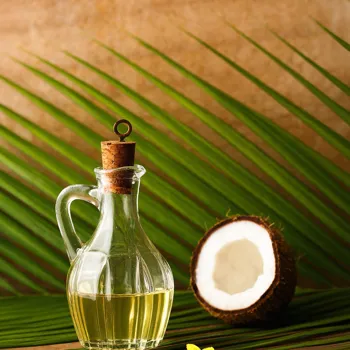
Talk to your doctor or a registered dietitian for personalized advice. Remember, a balanced diet and healthy lifestyle are the foundations of good health.
Diverse diet, exercise key; no superfood reliance
Keep in mind that no single food is a magic bullet. Focus on eating a variety of nutrient-rich foods, including fruits, vegetables, whole grains, and lean proteins. Stay active and get regular exercise. And always prioritize a healthy lifestyle over relying on any one "superfood."



















